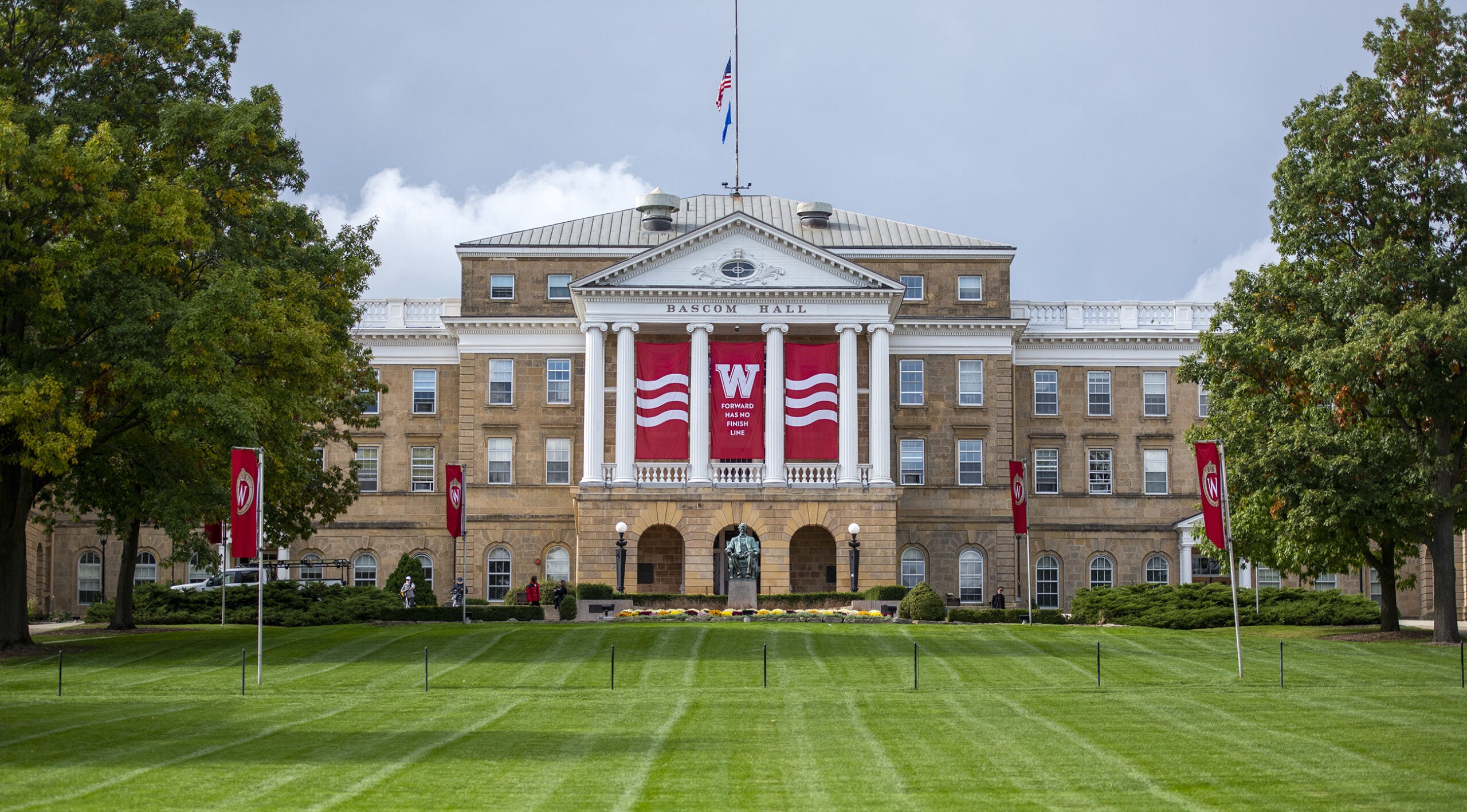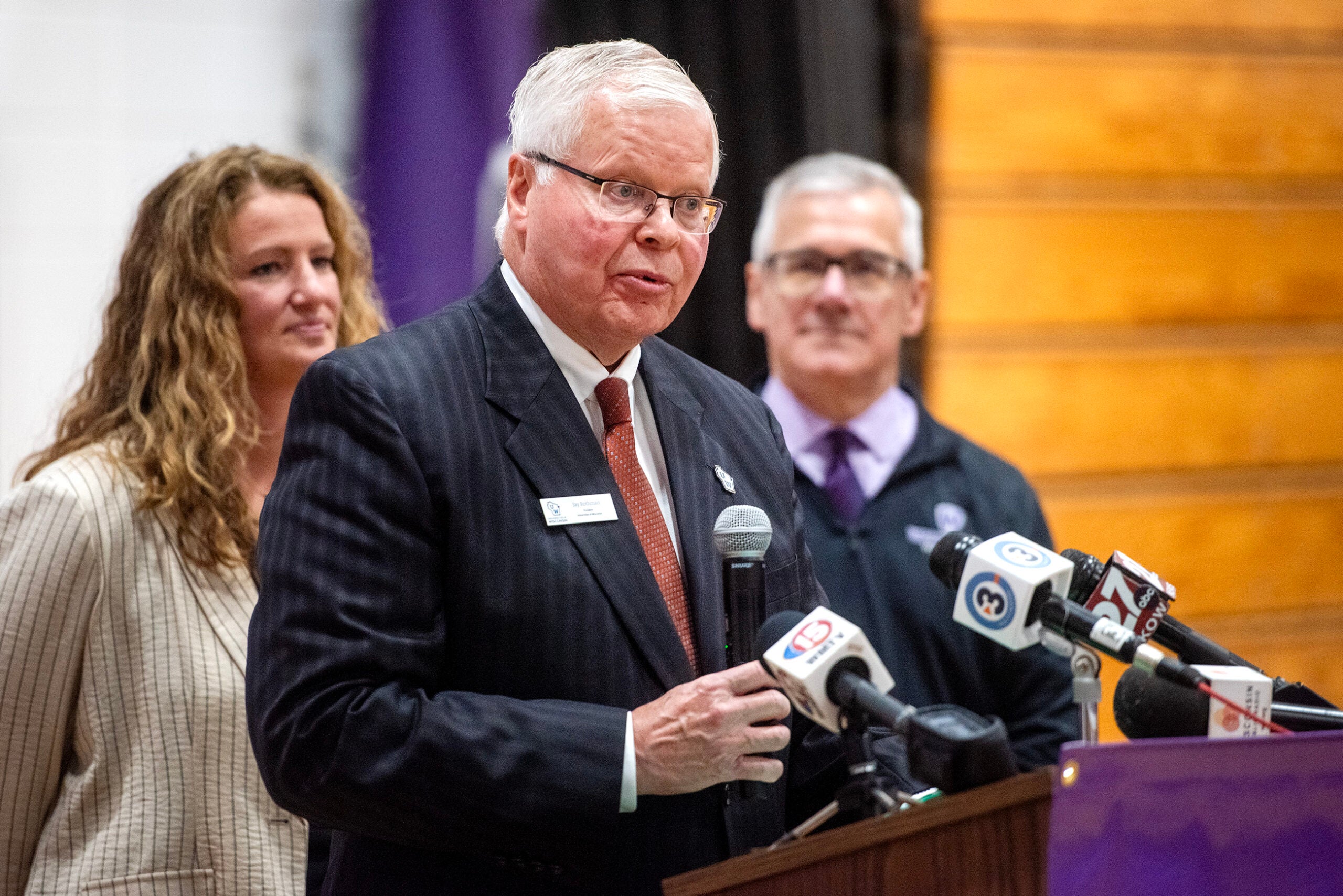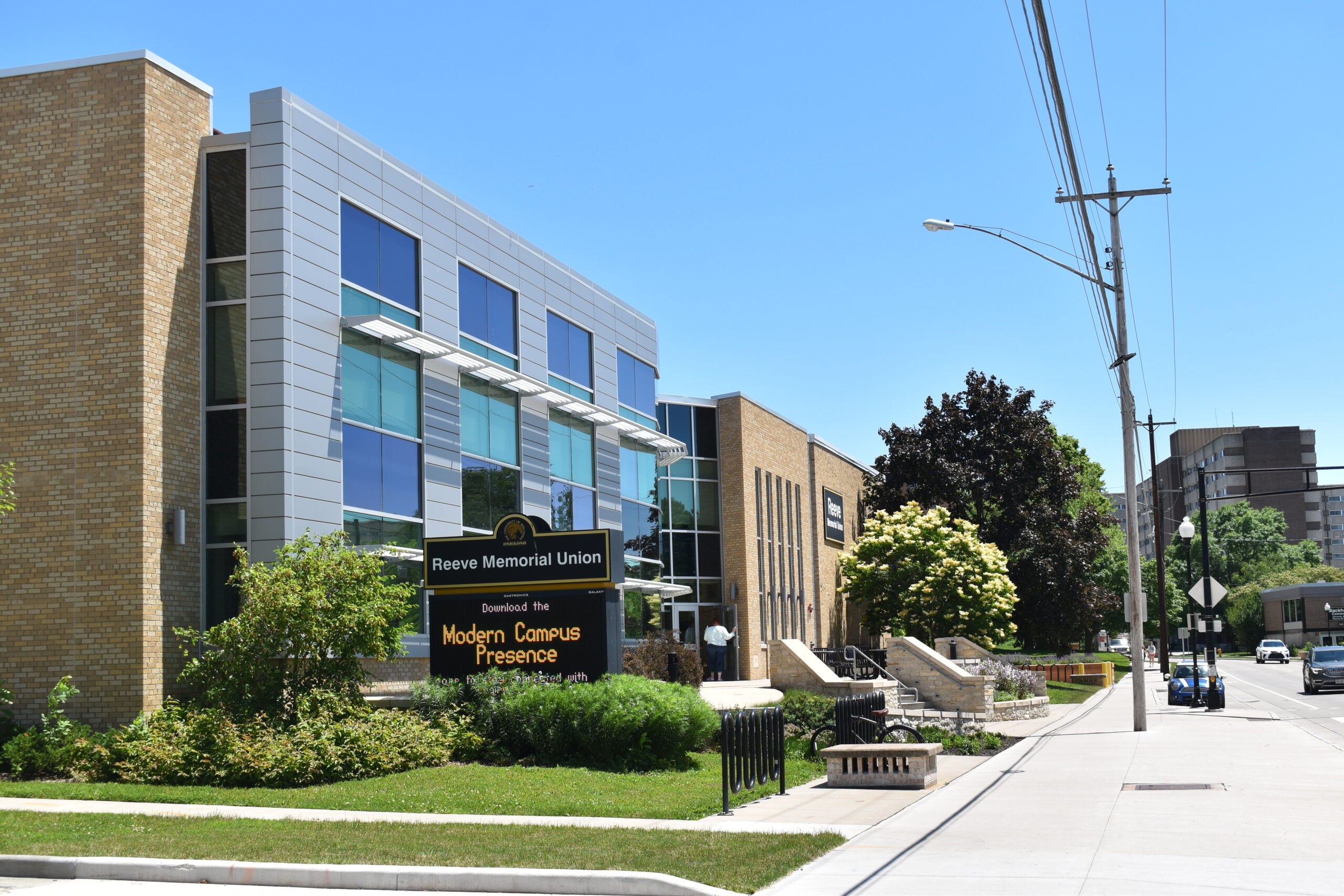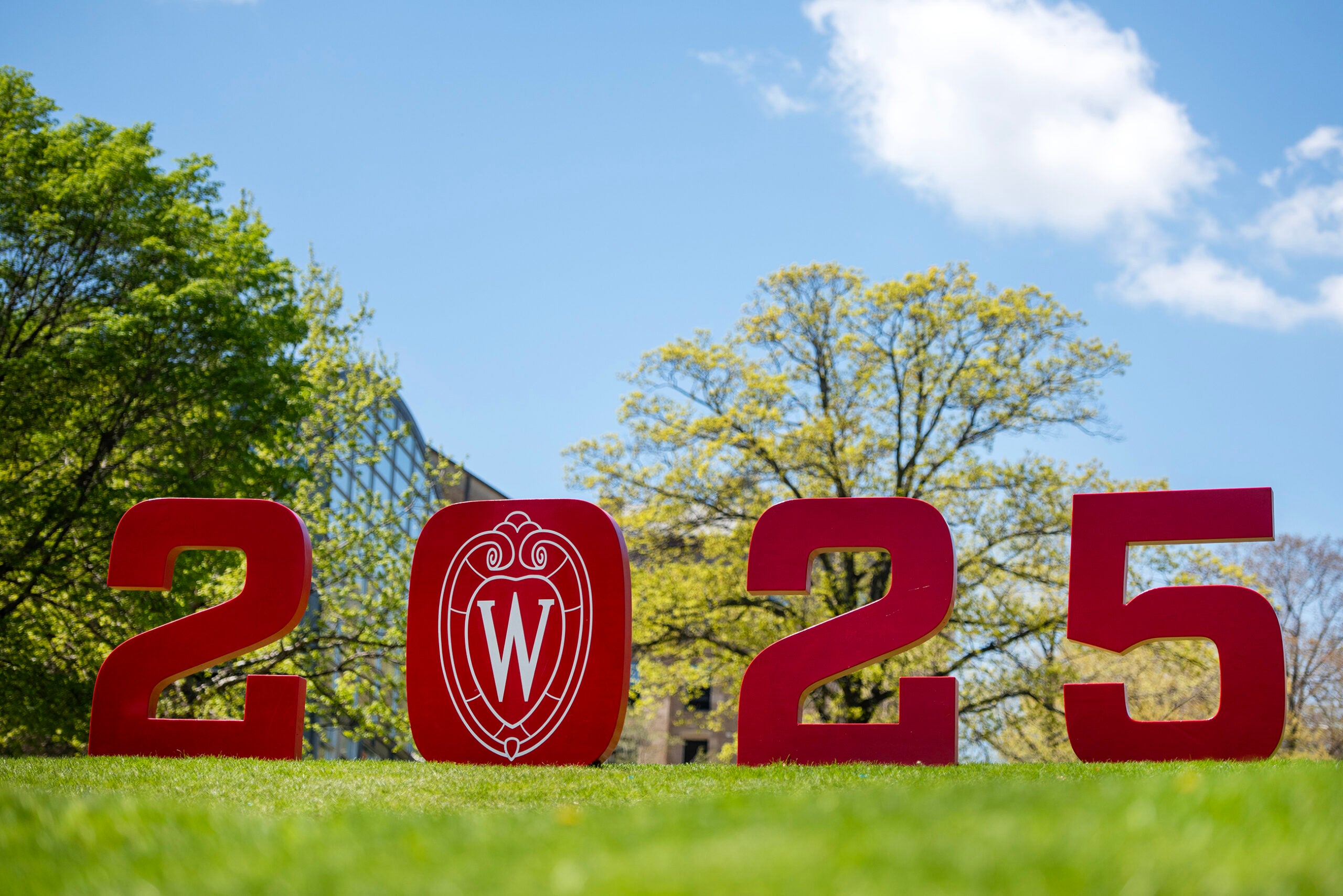Wisconsin students ranked in the top five percent of their class would receive a guaranteed spot at University of Wisconsin-Madison and at other state universities and technical colleges under a GOP bill.
The legislation hasn’t been introduced yet, but a draft provided to WPR would require the UW System and local technical college boards to create a guaranteed admission program for applicants ranked in the top five percent of their class.
Instead of a statewide ranking metric, the bill requires public, private and tribal school governing bodies to create a ranking formula based on academic achievement. That can include GPA, ACT test scores, course work and other measures of academic achievement. Those bodies would then prepare a class ranking of students at the end of their junior and senior years of high school.
News with a little more humanity
WPR’s “Wisconsin Today” newsletter keeps you connected to the state you love without feeling overwhelmed. No paywall. No agenda. No corporate filter.
The bill would also allow homeschooled students guaranteed admission if their ACT scores are within the top 5 percent of scores statewide.
Republican legislators promoting the bill say the change is needed because of numerous complaints about constituents’ kids not getting into the state’s flagship university.
During a press conference Wednesday the bill authors and supporters focused mostly on UW-Madison and claimed the flagship university’s admissions policies are “shrouded in secrecy.”
Rep. Jerry O’Connor, R-Fond du Lac, said he’s heard from parents claiming their kids, including those who would qualify in the top five percent, are rejected by UW-Madison “and it doesn’t really make sense.”
“The bottom line is we’re losing too many high-quality students to other states,” O’Connor said. “Once we export (students), and it seems to be an institutionalized brain drain, sending some of our best people to other states, guess what happens when they graduate from University of Minnesota or Indiana? They end up making that their home. They don’t come back.”
Former UW-Oshkosh nursing instructor Rep. Rachel Cabral-Guevara, R-Appleton, said she’s previously served on college admission boards. She said some of the criteria used in what are called holistic admissions practices “are quite subjective.”
“Sometimes we can’t provide all those details, unfortunately, to those students, and that isn’t transparent,” Cabral-Guevara said.
In an emailed statement, UW-Madison spokesperson Kelly Tyrrell told WPR the university looks forward to talking with bill authors about efforts to recruit Wisconsin’s best students.
“However, a brief review of the bill’s provisions raises a number of concerns,” Tyrrell said.
Tyrrell noted UW-Madison has “always admitted the majority of Wisconsin applicants and makes admit offers to students in every county in our state.”
“This past fall, UW-Madison admitted about 60 percent of Wisconsin resident applicants and students in 71 of our 72 counties chose to enroll at UW-Madison,” Tyrell said.
While taking questions about the bill from reporters, Rep. Dave Murphy, R-Greenville, who chairs the state Assembly Colleges and Universities Committee, complained about receiving heavily redacted copies of UW-Madison’s internal admissions requirements. Murphy said the university was being secretive. A letter from a UW-Madison attorney, provided by Murphy’s office, explaining the redactions said trade secrets are protected under state statutes.
Murphy told reporters there are fewer than 70,000 high school graduates in Wisconsin. He said the top five percent of those classes would work out to around 3,500 students.
Graduation data from the Wisconsin Department of Public Instruction show there were 59,519 graduates during the 2021-22 school year. That means under the bill’s language, 2,975 grads would qualify for automatic admission to UW-Madison, other UW campuses and tech colleges. That’s actually about 2,900 fewer Wisconsin resident freshman than were accepted at Madison under the school’s existing enrollment policy – the university admitted nearly 5,900 in-state first-year students from about 9,700 in-state applicants last fall.
An earlier version of the draft legislation would have also required Wisconsin colleges to admit the top five percent of high school graduates from across the nation. Graduation projections from the National Center for Education Statistics shows an estimated 3.6 million students were expected to finish high school this academic year, which means more than 182,000 of those would have been guaranteed a spot at UW-Madison or other state college or university. Last fall, the there were just over 160,000 students enrolled across all UW System schools.
O’Connor and the other lawmakers spoke about the provision during the press conference, but a staffer with O’Connor’s office said it had already been removed from the bill.
Most UW System campuses operate under an “open access” admissions policy, which officials say means a large majority of applicants are accepted. UW-Madison is considered a highly selective institution, which means far fewer applicants, regardless of residency, get in.
Current UW regent policy requires UW-Madison to enroll “a minimum of 5,200 new in-state undergraduate students each calendar year” based on a three-year average.
“The Board of Regents expects UW-Madison to continue to honor its commitment to enroll 3,600 Wisconsin freshmen within this broader policy.” The policy also considers Minnesota students participating in the state’s tuition reciprocity agreement to be in-state.
UW-Madison admissions data show there were 3,783 new freshmen from Wisconsin enrolled in fall 2022. Excluding Minnesota reciprocity students, that works out to 43.8 percent of the overall freshman class. If reciprocity students are included, the percentage works out to 53.4 percent under the regent policy.
That same year, UW-Madison enrolled 3,277 freshmen from other states and 742 international students. When combined, that works out to 46.6 percent of the incoming class in 2022.
There were 60,260 applicants for UW-Madison last fall. Just 8,635 were admitted.
When asked via email whether his bill could actually result in fewer Wisconsin residents being enrolled at UW-Madison, O’Connor said he doesn’t think so.
“In fact, we believe this bill will force the UW System to re-examine their 3,600 student cap,” O’Connor wrote. “The state legislatures of Texas (10%) and California (9%) have raised the bar higher than Wisconsin. We contend that the UW System needs to better represent Wisconsin students in their admissions formula.”
An analysis of historical admissions data in 2019 by an economist at Texas A&M University in College Station, Texas, found that state’s automatic admissions policy did little to expand access to the state’s top universities.
The proposed bill in Wisconsin comes as the U.S. Supreme Court is expected to issue a ruling this week that could ban the consideration of race in college admissions.
Rep. Murphy told reporters Wednesday “Republicans believe in merit” when asked if the GOP bill could lead to fewer students from marginalized groups being admitted to UW-Madison. According to university data, about 16.6 percent of last year’s first-year undergraduates were underrepresented students of color.
Murphy said the “real racial issue of our time is the poor education of minority students.”
“And I think we do need to improve that,” Murphy said. “The issue, though, is we need to improve it sooner, not once they get to the university level.”
Wisconsin Public Radio, © Copyright 2025, Board of Regents of the University of Wisconsin System and Wisconsin Educational Communications Board.







